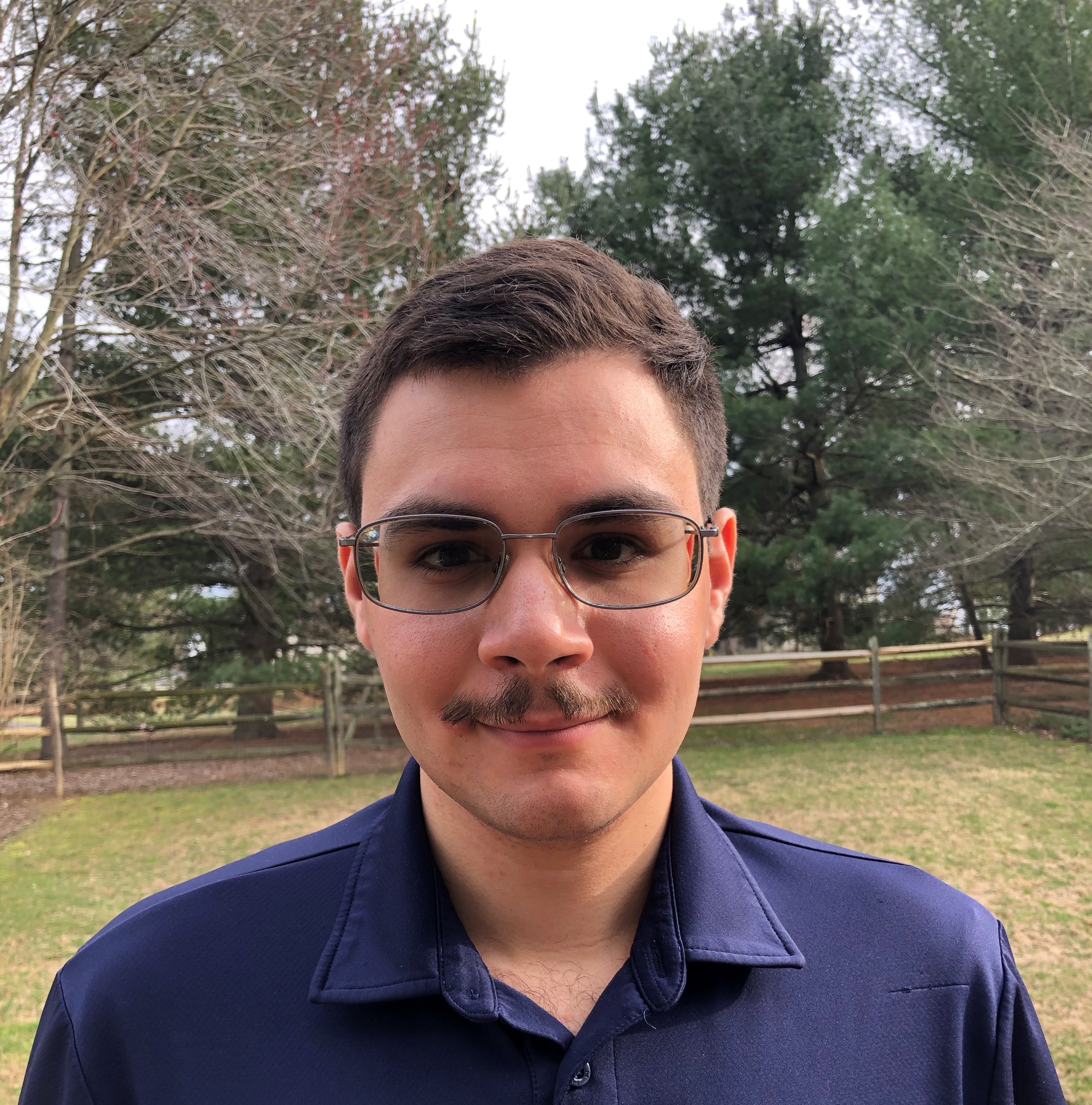Graduate Student Spotlight | Omar Aboul-Enein

"I chose to pursue my Master’s in Computer Science at Hood College because I appreciated the welcoming staff and supportive student environment. Additionally, I appreciated the program providing a good balance of flexibility and structure well-suited to working professionals"
Omar Aboul-Enein, M.S. Computer Science
Program
- Computer Science (M.S.)
- Cybersecurity (M.S., Certificate)
- Management Information Systems (M.S.)
- Information Technology (M.S.)
Department
- Computer Science & Information Technology
Omar Aboul-Enein is expected to graduate from Hood College's Master of Science program in Computer Science in May 2021. He is a federal Pathways Student Trainee working in robotics at the National Institute of Standards Technology (NIST).
Please provide a brief bio including your educational and career background.
I will be graduating from Hood College's Master of Science program in Computer Science in May 2021. I am a federal Pathways Student Trainee working in robotics at the National Institute of Standards Technology (NIST). At NIST, I assist in developing measurement systems, test artifacts, and test methods to evaluate mobile manipulator systems and coordinate registration methods. I am also a participating member of ASTM committee F45 on Automatic Guided Industrial Vehicles with a focus on subcommittee F45.02 on Docking and Navigation. In November 2020, I presented, “Formalizing Performance Evaluation of Mobile Manipulator Robots Using CTML”, at the American Society for Mechanical Engineers 2020 International Mechanical Engineering Congress and Exposition (IMECE 2020), which received an Outstanding Paper Runner Up among 190 submissions.
I graduated from Salisbury University in May 2018 with dual Bachelor’s degrees in Computer Science and Mathematics. After graduating from Hood College, I intend to work at NIST as a Computer Scientist.
Why did you choose Hood College and the program you are in?
I chose to pursue my Master’s in Computer Science at Hood College because I appreciated the welcoming staff and supportive student environment. For example, before I joined Hood College, the department welcomed me to attend their John C. and Janet Hobbs Cotton Cybersecurity Lecture Series, and allowed me to observe one of their Design and Analysis of Algorithms classes. This provided a great opportunity to introduce myself to the students and professors that I would be working with. Additionally, I appreciated the program providing a good balance of flexibility and structure well-suited to working professionals.
Congratulations on your performance at the ASME 2020 International Mechanical Engineering Congress and Exposition (IMECE) event. Please tell us how prepped for this event?
Due to the ongoing pandemic, preparing for the virtual conference challenged me in new ways. Prior to this conference, I had experience in presenting for the undergraduate research colloquia held at NIST as part of the Summer Undergraduate Research Fellowship (SURF) program. Speaking in front of a diverse audience in these colloquia helped me with pacing and taught me how to condense or visually explain information to listeners outside of my own expertise.
However, for IMECE, I pre-recorded my presentations with no audience and instead attended a live Q&A session. I opted to record my presentation one slide at a time, which provided a good exercise in iteratively practicing and refining the timing of my presentation. This also encouraged me to be more selective in choosing the most important points of my research project to highlight. I was also grateful for the opportunity to serve as a peer-reviewer for IMECE the summer before the conference.
For students new to attending research conferences, I highly recommend serving as a reviewer if possible. I found that providing feedback on other manuscripts was a great way to build a general awareness of current work within my field and to refine my own writing. Observing how other researchers chose to present information in their papers also helped me to brainstorm ideas on how to organize my own presentation.
Briefly explain how participating at the IMECE 2020 impacted your education, career, or community?
Participating in IMECE 2020 provided me with hands-on experience in published technical writing. Publishing this conference paper and serving as a peer reviewer improved my technical documentation skills, taught me the essential stylistic elements of conference publications, and exposed me to a wider range of research within the robotics discipline.
The conference itself also exposed me to a variety of available networking opportunities that facilitate the dissemination of current research work and the collegial relationships essential to supporting scientific advancement.
Any other information/fun facts that you would like to add?
I would like to thank my two co-authors, Roger Bostelman (Intelligent Systems Division, NIST) and Yaping Jing (Salisbury University), for their mentorship and feedback that helped make this work possible. From the Intelligent Systems Division at NIST, I would also like to thank Elena Messina, Jeremy Marvel, Ya-Shian Li-baboud, and my co-workers Soocheol Yoon, Megan Zimmerman, Shelly Bagchi, and Jennifer Case for their feedback and advice on the manuscript.
Inspired by Omar’s story and ready to #GOFURTHER in your career? Learn about Hood’s graduate programs, including the Computer Science Program, by clicking here.
Are you ready to say Hello?
Choose a Pathway
Information will vary based on program level. Select a path to find the information you're looking for!
